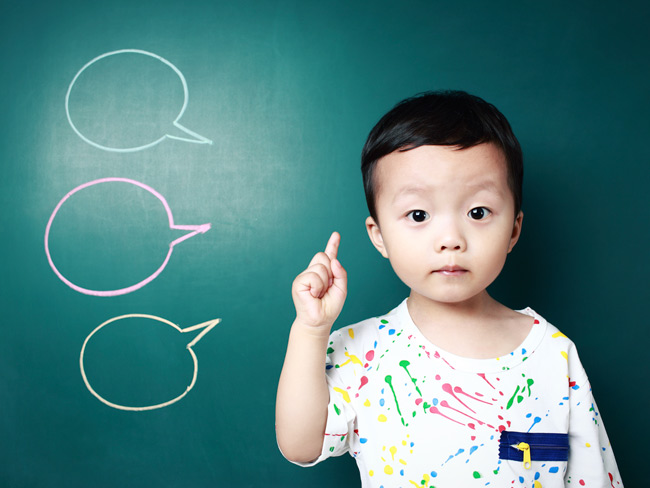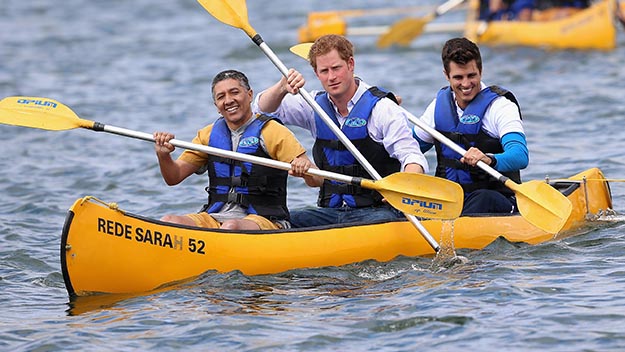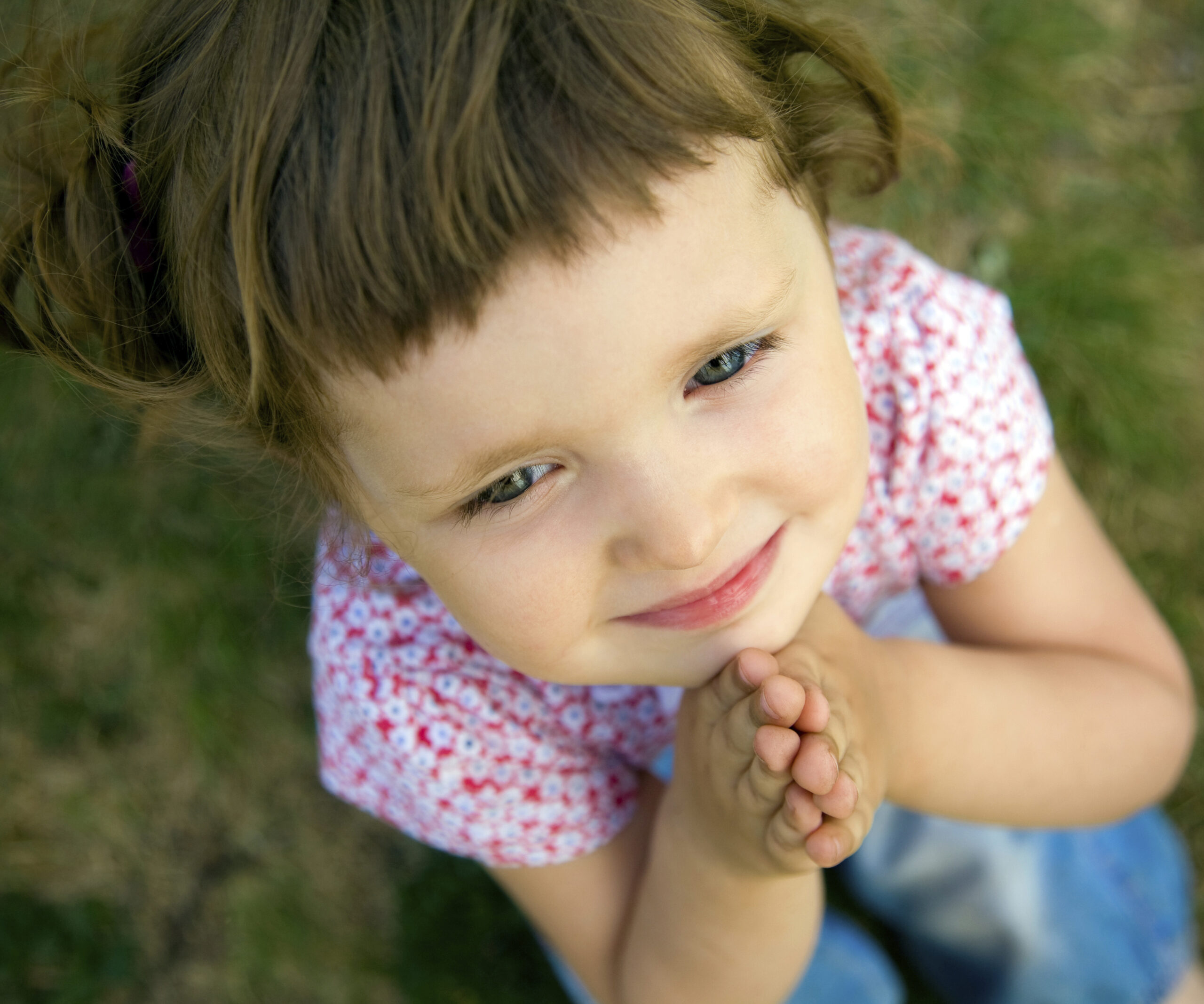It takes incredible skill to acquire and use language, with all its complexities of sound production, pitch, grammar and meaning. Remember that your role in how your child’s speech develops is crucial – from the start, how you talk to him and the experiences you provide for him will help him to make the most of his amazing language potential.
Making sounds – the first year
Babies start to utter speech-like sounds at around two months. These coos are different from the instinctive crying that makes up most of a young baby’s vocal repertoire. While no meaning is attached to them, they are recognisable as the basic sounds that will eventually combine to form words. Speech and language therapist Nadine Arditti says most children begin with ‘b’ and ‘p’ sounds because the pressing together of the lips that produces them is easy to see and imitate. Next come the nasal sounds – ‘t’ and ‘d’ usually followed by the ‘c’ and ‘g’ sound produced further back in the mouth. By around six months, most children will be babbling merrily.
First words
The first true words usually come at around 12 months. ‘They will be specific words, such as ‘juice’ or ‘gone’ – these are different to previous sounds he’s made because he is no longer experimenting, but using language to communicate,’ says Nadine Arditti. While children of this age may only be able to say one word at a time, they understand many more. An 11-month-old will usually be able to understand ‘no’ and by 18 months should be able to understand a simple four-word phrase, such as ‘Give me the toy’ without too much trouble.
Speaking in sentences
Between 18 months and two years, your child’s vocabulary will have increased tenfold. Estimates of the average two-year-old’s vocabulary vary from 50 to 200 words, but the number is less important than the way he uses words to communicate. Many two-year-olds will already have begun to link words in two and even three word phrases, such as ‘more juice’, ‘baby sleep’ or ‘mummy go car’, but they’ll still speak mainly in one-word sentences, using intonation to vary meaning.
Making connections
Vocabulary goes on increasing at a rapid rate throughout the following year, as does the child’s ability to connect words and express ideas. At three, most children will have started to ask questions about the world, and they will be using verbs and adjectives, and speaking in short sentences that roughly follow grammatical rules.
Mispronunciation
For three-year-olds, some words, such as those beginning with p and f, are easier to pronounce as it’s easy to see how others shape their lips to form the word. Certain other sounds may still be causing difficulties, but this is nothing to worry about. According to Nadine Arditti, children don’t fully develop their sound production systems until seven years. Before then, they may pronounce the hard c as t saying tat instead of cat. Other sticking points are ‘sh’ and ‘ch’ and sound blends, such as ‘tr’ and ‘tw’.
Clever communication
Delayed speech development need not be a cause for concern. There is no connection between late talking and low intelligence, or, for that matter, between early speech and high intelligence although as children get older, mastery of language and a high level of general intelligence will increasingly go together. Normal patterns of language development cover a very broad range, with girls often learning to speak earlier than boys.
Nadine Arditti cautions against comparing your child with others, even siblings, because every child develops differently. ‘As long as they get their needs across, it doesn’t matter if they stand on their heads to do it,’ she says. ‘If an 18-month-old is interacting with me – making eye contact, giving me things, vocalising – he’s talking, even if he isn’t using words. The important thing is communication.’
Any problems?
If a baby doesn’t babble, and he doesn’t respond when you speak to him, his hearing may be impaired. If you suspect this, see your GP or child health nurse. Deafness needs to be diagnosed early to stop your child’s language development falling too far behind. Problems such as glue ear can hold things up, but children usually catch up once they’ve been dealt with.
Your stories
Kate, 23, is mum to Sarah, seven, and Julia, two
‘Julia babbled at the usual age of 5-6 months, but she developed language slowly from then on – by 20 months, she wasn’t responding well to conversation and didn’t know many words. The problem was a bout of ear infections, which she started getting at around 14 months. When these cleared up last summer, her speech began to improve and now she’s much more articulate. She still doesn’t put words together very much, but she uses many more of them.”


